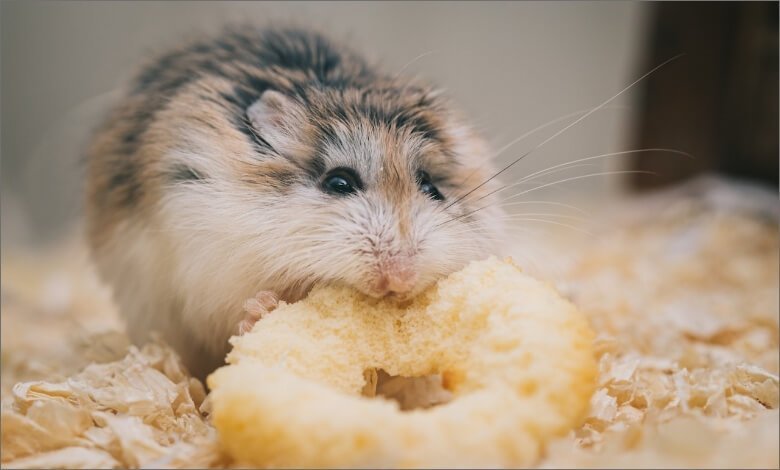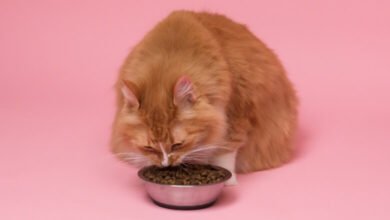How to Choose the Right Food For Your Hamsters

Hamsters are adorable little creatures that make great pets. As a responsible hamster owner, one of the most important aspects of caring for your furry friend is providing them with the right food. Choosing the right food for your hamsters is crucial to their overall health and well-being. In this article, we will explore the factors to consider when selecting hamster food, the different types of food available, and provide some valuable tips to help you make the best choices for your beloved pets.
Introduction
Introducing a balanced and nutritious diet is vital for your hamster’s longevity and vitality. By feeding them the right food, you can ensure they have strong immune systems, healthy fur, and an active lifestyle. However, with so many options available, it can be overwhelming to determine what’s best for your hamster. That’s why we have compiled this comprehensive guide to help you navigate the world of hamster food and make informed decisions.
How to Choose the Right Food For Your Hamsters
The key to choosing the right food for your hamsters is understanding their nutritional needs. Hamsters are omnivores, which means they require a combination of fresh fruits, vegetables, grains, and protein sources to thrive. Here are some important factors to consider when selecting hamster food:
Factors to Consider
- Age and Life Stage: Hamsters have different nutritional requirements depending on their age and life stage. Ensure you choose food that is specifically formulated for your hamster’s life stage, such as juvenile, adult, or senior.
- Ingredients: Read the ingredient list carefully and opt for hamster food that contains high-quality ingredients. Look for foods that are rich in vitamins, minerals, and essential nutrients.
- Allergies and Sensitivities: Just like humans, hamsters can have allergies or sensitivities to certain foods. Pay attention to any adverse reactions your hamster may have and avoid those specific ingredients in their diet.
- Variety: Offering a varied diet ensures that your hamster receives a wide range of nutrients. Include a mix of commercial hamster food, fresh fruits, vegetables, and protein sources in their diet.
Types of Food
There are various types of food you can provide to meet your hamster’s nutritional needs. Let’s explore some of the options:
Commercial Hamster Food
Commercial hamster food is a convenient and readily available option. These specially formulated pellets or mixes are designed to provide a balanced diet for your hamster. When selecting commercial hamster food, ensure that it contains a good balance of grains, seeds, fruits, and vegetables.
Fresh Fruits and Vegetables
Fresh fruits and vegetables are excellent sources of vitamins and minerals for your hamster. Some safe options include apples, carrots, spinach, and cucumbers. Remember to wash the produce thoroughly and provide small, bite-sized pieces to your hamster.
Protein Sources
Protein is essential for your hamster’s growth and muscle development. Offer small amounts of protein-rich foods such as cooked chicken, mealworms, or boiled eggs. Ensure the protein sources are cooked and free from seasoning or additives.

Avoid These Foods
While certain foods are beneficial for hamsters, there are also some foods you should avoid. These include:
- Citrus Fruits: Citrus fruits can be too acidic for hamsters and may cause digestive issues.
- Onions and Garlic: Onions and garlic are toxic to hamsters and should never be included in their diet.
- Chocolate: Chocolate contains theobromine, which is harmful to hamsters and can cause serious health problems.
- Sugary or Salty Foods: Avoid feeding your hamster sugary or salty foods, as they can lead to obesity and other health issues.
Feeding Schedule
Establishing a regular feeding schedule is important for your hamster’s well-being. Hamsters are nocturnal animals, so it’s best to feed them in the evening. Offer fresh food every day and remove any uneaten food within 24 hours to prevent spoilage. This helps maintain a hygienic and healthy environment for your hamster.
Hydration
In addition to food, providing fresh and clean water is essential for your hamster’s hydration. Use a water bottle with a sipper tube attached to the cage to ensure a constant supply of water. Regularly check the water bottle and clean it to prevent bacterial growth.
Frequently Asked Questions
FAQ 1: Can hamsters eat grapes?
Yes, hamsters can eat grapes, but in moderation. Grapes are high in sugar, so offer them as an occasional treat rather than a regular part of their diet.
FAQ 2: Is it okay to feed my hamster nuts?
Some nuts, such as unsalted almonds or walnuts, can be given to hamsters in small amounts. However, avoid nuts that are salted or coated with any flavorings.
FAQ 3: Should I feed my hamster lettuce?
While lettuce is generally safe for hamsters, it contains high water content and low nutritional value. Opt for leafy greens like spinach or kale instead.
FAQ 4: Can hamsters eat cheese?
Cheese is not recommended for hamsters. Most cheeses are high in fat and can lead to digestive problems. It’s best to avoid feeding cheese to your hamster.
FAQ 5: Can hamsters eat bananas?
Yes, hamsters can eat bananas. Bananas are a good source of vitamins and minerals for hamsters, but offer them in small amounts due to their high sugar content.
FAQ 6: Is it safe to give my hamster cooked rice?
Yes, cooked rice is safe for hamsters to eat. Ensure the rice is plain and not seasoned with any spices or additives.
Conclusion
Choosing the right food for your hamsters is essential for their health and happiness. By considering factors such as age, ingredients, and variety, you can provide a well-rounded diet that meets their nutritional needs. Remember to avoid harmful foods, establish a feeding schedule, and provide fresh water for hydration. With proper care and attention to their diet, your hamsters will thrive and bring joy to your life.






